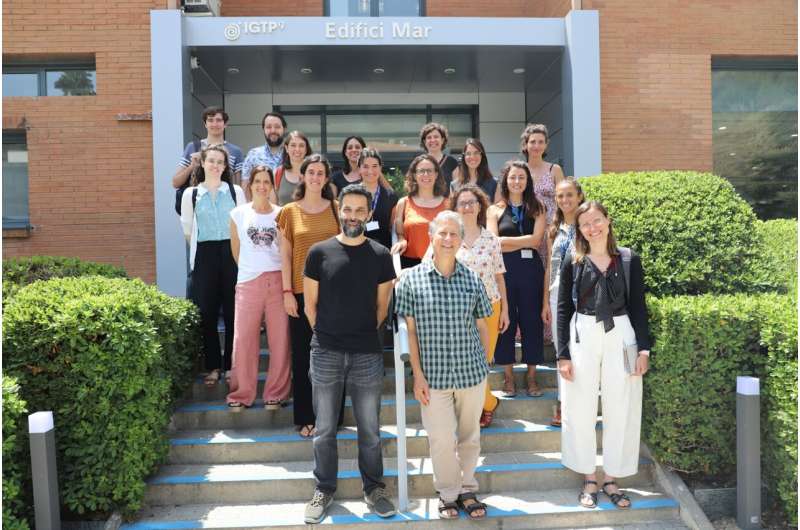This article has been reviewed according to Science X's editorial process and policies. Editors have highlighted the following attributes while ensuring the content's credibility:
fact-checked
peer-reviewed publication
proofread
Decoding depression amidst COVID-19: A comprehensive analysis of genetic and environmental stressors

As a strategic initiative under IGTP, GCAT (Genomes for Life) continues to make substantial contributions to public health knowledge. The latest GCAT study, conducted through the COVICAT initiative, signed by Ximena Goldberg and Rafael de Cid, sheds light on the complex interplay between genetic predispositions and environmental stressors in determining depression risk, especially during the COVID-19 lockdown.
Published
in Scientific Reports, the COVICAT study, involving a Spanish cohort of 9,218 individuals from GCAT the study, utilized an innovative approach by incorporating Poly-Environmental Risk Scores (PERS) along with traditional Polygenic Risk Scores (PRS). This dual analysis has provided a deeper understanding of how various stressors-social, behavioral, and environmental-interact with
Key findings include:
- Primary drivers: social and behavioral stressors were identified as the main contributors to depression risk. This insight underscores the need for targeted public health interventions focused on mitigating these specific stressors.
- Risk variance: the comprehensive risk model encompassing both genetics and environmental risks explained 16.9% of the variance in depression severity, demonstrating a significant association between environmental stressors and depression levels.
- Mitigating effects: An interesting interaction was observed between environmental stressors and genetic risk, suggesting a potential buffering effect of the former on genetic predispositions.
These findings are crucial for shaping future public health strategies. By focusing on the primary drivers of depression-social and behavioral stressors-more effective interventions can be designed to reduce depression risk and promote resilience in the population.
The COVID-19 lockdown presented a unique natural experiment to explore these dynamics on a large scale. This context allowed the GCAT team to gather valuable data on the interplay between genetics and environmental exposures, offering new insights into the etiology of depression.

GCAT's commitment
As a flagship project within IGTP, GCAT is dedicated to advancing our understanding of complex diseases through innovative research. "The findings from our study highlight the importance of considering both genetic and environmental factors when addressing depression risk," says Rafael de Cid, last author of the study.
"This comprehensive approach allows us to develop more effective public health interventions that can mitigate the impact of depression on our communities."
Xavier Farré, the first author of the study, added, "The COVICAT study and the circumstances surrounding the COVID-19 lockdown provided a unique opportunity to investigate how genetics and environmental factors interact to influence mental health, particularly depression, on a population level."
More information: Xavier Farré et al, Decoding depression by exploring the exposome-genome edge amidst COVID-19 lockdown, Scientific Reports (2024). DOI: 10.1038/s41598-024-64200-7




















